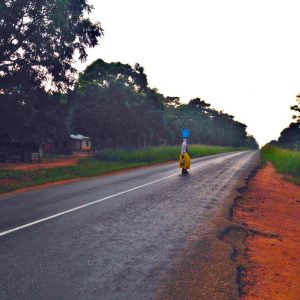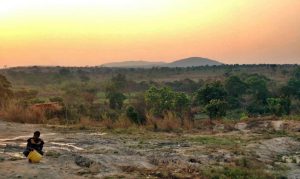This project is made possible through the partnership of WATER CHARITY and the NATIONAL PEACE CORPS ASSOCIATION. ![]()
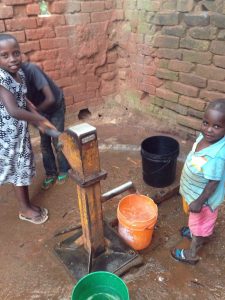 Location
Location
Likarangilo Village, Songea DC, Ruvuma Region, Tanzania
Community Description
Likarangilo is located in the southwest region of Ruvuma in Tanzania. It is situated on the main road, just 45 minutes from the regional capital of Songea. There are a total of 2,984 villagers who live throughout Likarangilo and identify with various tribes throughout Tanzania. Overall, it is a very diverse village with many religions, customs, and even a variety of food and weather patterns.
Likarangilo experiences four seasons throughout the year; heavy rains from January to March, light rains from April to May, winter from June until September, and hot dry weather from October until December. Each season brings different crops, foods, and living conditions.
For example, during the heavy rainy season, Likarangilo has many mangoes and many people find it difficult to do work due to the rain. During the light rainy season, there are many pumpkins and potatoes, and people are starting to harvest foods from their gardens and farms. With the hot summer, there is a lot of sugar cane, a lack of water, and people spend much of their time fetching water at nearby rivers and small lakes.
Overall, the diversity in people, seasons, food and resources makes Likarangilo an exciting and wonderful place to live.
Problem Addressed
Likarangilo faces many issues throughout the year surrounding health, sanitation, and food security. During the short rainy season, water is more abundant as villagers can catch rainwater at their homes, but food becomes scarcer, people wait for the upcoming harvesting season, and heavy flooding hinders productivity and work. The burden of gastrointestinal diseases and skin infection also increases during this short rainy season.
During the long dry season, many of the on-site wells and water pumps are depleted and villagers are left to fetch water at rivers and lakes located outside of the village, which are heavily polluted and not a safe source for potable water, leading to an increased risk for waterborne diseases and gastrointestinal illnesses.
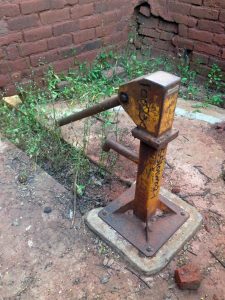 As the village is situated on the busy highway, women and children who live in the sub-villages without functioning water pumps are required to cross this busy highway throughout the day and into the night, placing them at high risk for accidents. Small children and their mothers often wait for traffic to pass while carrying large buckets of water back to their homes.
As the village is situated on the busy highway, women and children who live in the sub-villages without functioning water pumps are required to cross this busy highway throughout the day and into the night, placing them at high risk for accidents. Small children and their mothers often wait for traffic to pass while carrying large buckets of water back to their homes.
Project Description
This project is to rehabilitate four water pumps located throughout the village.
These four pumps have different issues and vary in detail, and will be fixed by mechanics employed by Handel Tanzania, a company located in Songea town. They will be taking private transportation to the village with all the equipment and parts that will be needed to repair all of the water pumps.
The village will provide 25% of the budget in the form of Tanzanian Shilling (TSH) currency through community contribution, and the water committee will collect this contribution from house-to-house visits. Each household is expected to provide 1,000 TSH.
The following work will be done on the four water pumps:
- Pump # 1: A deep cleaning will be done to remove dirt and increase the depth by two meters, from 27 to 29 meters. Then, 10 tubes, through which water is pumped up from the water table will be replaced.
- Pump #2: The well will be cleaned completely since there is sludge blocking the water path. The depth will be increased by five meters, from 27 to 32 meters.
- Pump #3: The existing water pump handle will be repaired by soldering the pieces of metal that have been damaged and replacing a rubber band which helps to make the pump functional. This well will also be cleaned to remove sludge blocking the path of water flow.
- Pump #4: The well will be cleaned to remove sludge and the depth increased by two meters, from 27 to 29 meters. Nine tubes through which water is pumped up from the water table will be replaced.
Once these water pumps are renovated, the water committee and the PCV will hold educational meetings and training with the community. They will teach how to responsibly use and maintain the water pumps, and determine a plan for how to maintain and repair the pumps in the future.
The villagers will make a monthly contribution of 500 shillings after the completion of the project to help with maintenance when issues arise in the future.
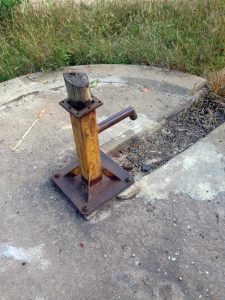 Project Impact
Project Impact
2,400 people will benefit from the project.
Peace Corps Volunteer Directing Project
Alyssa Sajady
Monitoring and Maintenance
The Likarangilo Water Committee will be in charge of monitoring and maintenance.
Comments
While this project has not been undertaken as an official Peace Corps Let Girls Learn project, it accomplishes the same objective of creating conditions that will enable girls to go to and remain in school.
In the village, it is typically the job of women and children to fetch water for the household. They wake up early in the morning and stay up late into the nighttime hours, and depending on the season, stand in line for up to two hours waiting for their turn to pump water. Many need to make multiple trips as they fill up to eight to ten 20-liter buckets of water per day to meet the needs of their large families.
The time spent fetching water could be much better spent on other things, such as doing domestic chores, socializing, and studying. For school-age girls, the time- savings resulting from the project will give them the opportunity to go to and remain in school.
Fundraising Target
$2,900
Funds raised in excess of the project amount will be allocated to other projects in the country.
Donations Collected to Date
$2,900
ADOPT THIS PROJECT BY CONTRIBUTING THE DOLLAR AMOUNT OF PROJECT
Donations of any amount will be appreciated. The full amount will give you “naming rights” if that is something you would like.
Dollar Amount Needed
$0 – This project has been funded by an anonymous donor.
Additional donations will go toward other projects in Tanzania.
This project has been completed. To read about the conclusion, CLICK HERE.
